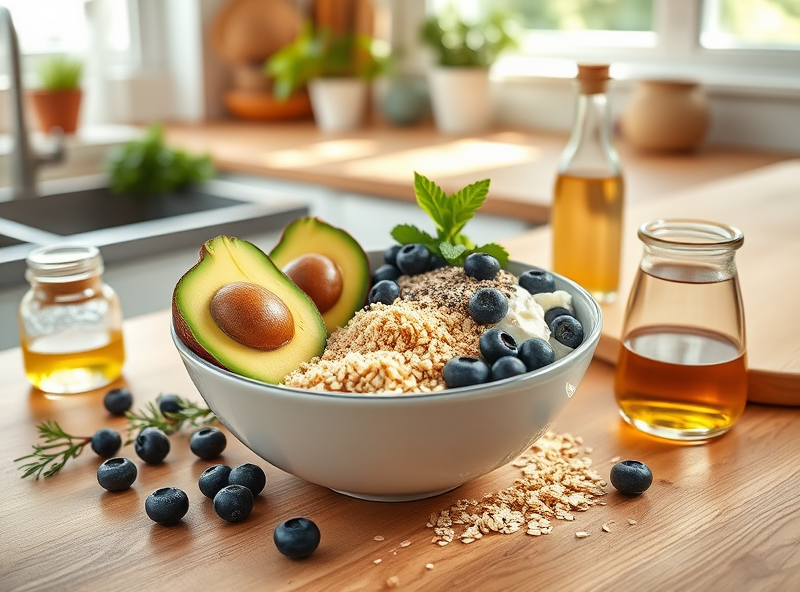
Exploring Vegan Diet: Benefits and Challenges
Vegan Diet and Weight Management

Adopting a vegan diet can be a powerful tool for managing your weight in a healthy and sustainable way. Plant-based diets are naturally rich in fiber, which helps you feel full for longer periods and reduces the likelihood of overeating. Whole foods like fruits, vegetables, legumes, and whole grains are lower in calories compared to processed or animal-based foods, making it easier to maintain a calorie deficit if weight loss is your goal. Additionally, vegan diets are often lower in saturated fats, which can contribute to better heart health alongside weight management. However, it’s important to approach a vegan diet mindfully. Without proper planning, it’s possible to miss out on essential nutrients like protein, iron, and vitamin B12. Incorporating a variety of plant-based protein sources such as lentils, tofu, tempeh, and quinoa can help ensure your body gets the nutrients it needs. Consulting with a dietitian or nutritionist can also be a great way to tailor your vegan diet to your weight management goals while maintaining overall health. Remember, weight management is not just about the numbers on the scale but about creating a balanced and nourishing lifestyle that supports your well-being.
Heart Health Benefits of Veganism

A vegan diet can be a powerful ally for maintaining and improving heart health. Research shows that plant-based diets are naturally low in saturated fats and cholesterol, which are major contributors to heart disease. By focusing on whole foods like fruits, vegetables, whole grains, nuts, and legumes, vegans often consume higher levels of fiber, antioxidants, and healthy fats, all of which are essential for cardiovascular health. Fiber, for instance, helps lower LDL (bad cholesterol) levels, while antioxidants combat inflammation and oxidative stress, reducing the risk of heart disease. Additionally, plant-based diets are linked to lower blood pressure and healthier weight management, both of which play a critical role in reducing the risk of heart-related conditions. Transitioning to a vegan lifestyle may seem challenging at first, but the long-term benefits for your heart and overall well-being make it a worthwhile choice. Always consult with a healthcare professional or nutritionist to ensure you’re meeting all your nutritional needs while embracing a vegan diet.
Environmental Impact of a Plant-Based Diet

Switching to a plant-based diet is not only beneficial for personal health but also has a profound impact on the environment. By reducing the consumption of animal products, we can significantly lower greenhouse gas emissions. Studies show that livestock farming is one of the largest contributors to methane and carbon dioxide emissions, which are major drivers of climate change. Additionally, a plant-based diet requires far less water and land compared to meat production. For instance, producing one pound of beef can use up to 1,800 gallons of water, while growing the same amount of vegetables or grains requires only a fraction of that. By choosing plant-based foods, we can conserve natural resources, protect biodiversity, and reduce deforestation caused by agricultural expansion. Transitioning to a plant-based diet is a simple yet powerful way to contribute to a healthier planet.
Nutritional Challenges in a Vegan Diet

Adopting a vegan diet can be a rewarding journey for your health, the environment, and animal welfare. However, like any dietary choice, it comes with its own set of challenges, particularly when it comes to meeting nutritional needs. One of the most common concerns for vegans is ensuring they get enough essential nutrients such as vitamin B12, iron, omega-3 fatty acids, calcium, and protein. Since these nutrients are often found in animal-based products, vegans need to carefully plan their meals to include fortified foods, plant-based alternatives, and supplements if necessary. For example, vitamin B12, which is crucial for nerve function and red blood cell production, is not naturally present in plant foods, so fortified cereals, plant milks, or B12 supplements are essential. Similarly, plant-based sources of iron, like lentils and spinach, are less easily absorbed by the body compared to animal-based iron, so pairing them with vitamin C-rich foods can enhance absorption. By staying informed and mindful, vegans can successfully navigate these challenges and maintain a balanced, nutrient-rich diet.



